MPA Federal Advisory Committee Membership
The 20 MPA Federal Advisory Committee includes representatives from different geographic regions, including the Great Lakes and U.S. territories. They represent a wide variety of interests including resource management (state and tribal), natural and social sciences, industry (commercial and recreational fishing, oil and gas production, shipping and ports, and recreation and tourism) and conservation.
John M. Anderson
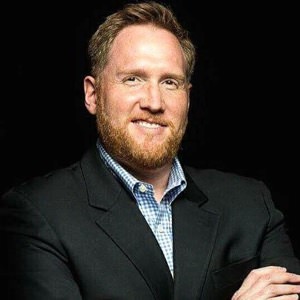
John M. Anderson is Senior Policy Advisor for the Environmental and Land Use and Public Policy practice groups of the law firm Nossaman, LLP. In this capacity, Anderson provides strategic advice to clients on environmental, energy, and natural resource issues before local, state, and federal regulatory and legislative bodies, and guides clients in addressing permitting and policy issues associated with the development of energy and other large-scale infrastructure projects. He has long been involved in some of the key siting and environmental compliance challenges facing the energy generation and transmission sectors, including issues related to threatened and endangered species, eagles, and migratory birds, and is viewed nationally as a leader on these issues and a progressive and solution-based advocate.
In his current capacity with Nossaman, Anderson plays a key role serving as the Policy Director for the Energy and Wildlife Action Coalition (EWAC), which was established in 2013 to promote sound national environmental policies while ensuring the continued generation and transmission of reliable and affordable electricity.
Prior to joining Nossaman, for over 6 years, Anderson served as the Senior Director, Permitting Policy and Environmental Affairs for the American Wind Energy Association (AWEA) where he led the industry in addressing policy issues associated with wildlife, sound/health impacts, property values, visual and cultural resources, public lands, civil and military aviation, and radar system impacts as they relate to the siting and operation of wind farms in the landscape. Through this role, Anderson worked extensively with federal regulatory agencies and Congressional offices, developing a strong rapport with political appointees, personal office, committee, and career staff alike.
Prior to AWEA, Anderson was Eastern Regional Manager of Environmental Affairs for BP Alternative Energy where he was the senior environmental permitting and regulatory policy advisor responsible for the permitting of new wind and solar energy development projects in the eastern half of the U.S., as well as management of post-construction environmental compliance matters at BP's operating wind facilities across the U.S.
Anderson holds a B.S. in Environmental Science and Resource Management and a minor in Environmental Law from the University of Rhode Island, and has over two and a half decades of professional experience in the areas of energy policy, environmental planning, permitting and licensing, regulatory analysis and policy development.
Brian Baird
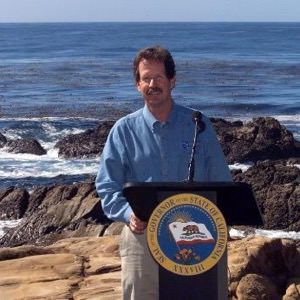
Brian Baird is an Ocean and Coastal Policy Advisor. Currently he chairs the MPA Federal Advisory Committee and serves as President of the Coastal States Stewardship Foundation. He previously directed the Ocean and Coastal Program at The Bay Institute (TBI) in San Francisco and served for 18 years as the Assistant Secretary for Ocean and Coastal Policy under California Governors Brown, Schwarzenegger, Davis, and Wilson.
Brian was the chief writer of California Governor Pete Wilson's 1997 ocean management strategy and for California Governor Arnold Schwarzenegger's 2004 ocean action plan. He helped create and staff the West Coast Governors' Alliance (now West Coast Ocean Partnership), advised the California Ocean Protection Council, and served on the California Coastal Commission and other state and national boards, commissions, and ocean advisory committees.
From 2007 to 2008 Brian chaired the national Coastal States Organization. He was later appointed by the White House to serve as an advisor to the National Ocean Council after nomination by the Governors of California, Oregon, and Washington. He created the international conference - California and the World Ocean – held in 1997, 2002, 2006, and 2010. Brian received formal recognition of his ocean protection work from the California State Legislature and the California Congressional Delegation in 2011.
John Ballotti
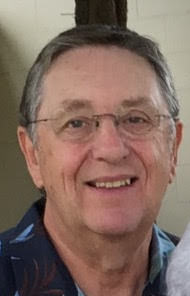
John Ballotti is currently the president of the Los Angeles Chapter of Costal Conservation Association California (CCA CAL). He is also a state board member and Executive Committee member of CCA CAL. Ballotti is on the Costal Conservation Association (CCA) national board of directors. The objective of CCA is to conserve, promote, and enhance the present and future availability of marine resources for the benefit and enjoyment of the general public. Ballotti is a current board member and past president of the Los Angeles Rod and Reel Club as well as past Chairman of the of the Los Angeles Rod and Reel Club Foundation established in 1950 to take inner city and children in need ocean fishing.
A recreational angler all his life, Ballotti graduated from Fordham University with a degree in Finance. He is a Vietnam Era veteran serving in command and staff positions in the United States, Germany and Korea. Ballotti retired after working nearly 30 years for a Fortune 500 children's products company in the areas of operations and global procurement. In 2014, Ballotti received his United States Coast Guard Merchant Mariner Credential (6-Pack Captain's License). He lives in Torrance, CA, is married with 2 daughters, 4 granddaughters and 1 grandson.
Dr. Katy Croff Bell
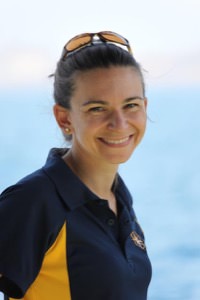
Dr. Katy Croff Bell is an ocean explorer who has spent nearly 20 years using deep sea technology to discover what lies at the depths of the ocean. She is the Founder of the Open Ocean initiative at the MIT Media Lab and a Fellow at the National Geographic Society, developing programs for rapid deployment of new and emerging technologies for ocean exploration and community building. Previously, as Executive Vice President of the Ocean Exploration Trust, Dr. Bell led the development of exploration and research activities for E/V Nautilus, including management of scientists, engineers, educators, and students from 30+ countries working together to conduct telepresence-enabled expeditions around the world.
Bell is currently Vice Chair of the Marine Protected Areas Federal Advisory Committee. She was a 2001 John A. Knauss Marine Policy Fellow in the NOAA Office of Ocean Exploration, 2006 National Geographic Emerging Explorer, and 2014 MIT Media Lab Director's Fellow. Bell holds an S.B. in ocean engineering from MIT, an M.Sc. in maritime archaeology from the University of Southampton, and a Ph.D. in geological oceanography from the Graduate School of Oceanography at the University of Rhode Island.
Dr. Alex Brylske
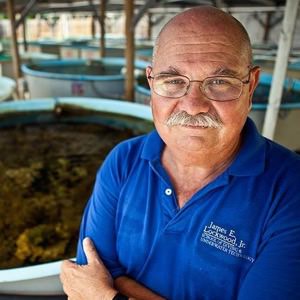
Dr. Alex Brylske has had varied career as a marine educator, writer and consultant. His unique background combines training as a marine biologist, specializing in resource management, with a forty-year career in marine tourism. This has given him a solid grounding in tropical marine science, as well as an intimate understanding of the dive tourism industry. His experience has taken him to destinations all over the world including the Caribbean, Hawaii, Red Sea, Southeast Asia, Fiji, Papua New Guinea and Micronesia, where he has worked for companies in the private sector, governmental agencies and non-governmental organizations.
Alex is a former member of the Florida Governor's Ocean Committee, where he helped make recommendations to the Governor's Cabinet on the State's ocean resource management policy. He also served as a member of the Sanctuary Advisory Council (SAC) for the Florida Keys National Marine Sanctuary. In 2012 Alex was selected as the DAN/Rolex Diver of the Year. Currently Dr. Brylske is a Professor of Marine Science and Technology at Florida Keys Community College in Key West.
Dr. Brylske's interests include coral reef conservation, environmental education, and sustainable tourism. He's a past recipient of NOAA's Walter B. Jones Memorial Excellence Award for Ocean and Coastal Resource Management for his contribution to the field of sustainable marine tourism. Alex has published and made numerous presentations on sustainable tourism at conferences around the world.
Dr. Mark Carr
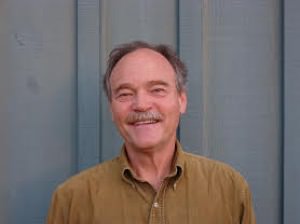
Dr. Mark Carr is a Professor of marine ecology in the Department of Ecology and Evolutionary Biology at the University of California, Santa Cruz. His research focuses on the ecology of coastal marine fishes and coastal marine ecosystems and informs a variety of topics in marine conservation and fisheries management (http://research.pbsci.ucsc.edu/eeb/rclab/). His research includes the design and evaluation of marine protected areas (MPAs). For eight years, Mark served as Co-chair of the Science Advisory Team to California's Marine Life Protection Act, which culminated in the establishment of a state-wide network of marine protected areas. He is now involved in the design and implementation of the monitoring and evaluation program of California's MPA network. He is a founding principal investigator with the Partnership for Interdisciplinary Studies of Coastal Oceans (PISCO).
Martha Honey, Ph.D
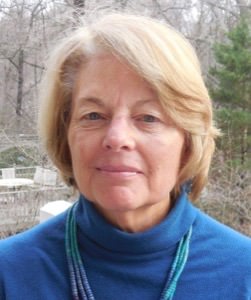
Martha Honey, Ph.D, is co-founder (2003) and Executive Director of the Center for Responsible Travel (CREST). Over the last two decades, she has written and lectured widely on ecotourism, Travelers' Philanthropy, cruise and resort tourism, climate change, and certification issues. Her books include Coastal Tourism, Sustainability, and Climate Change in the Caribbean, Vol. 1 & 2 and Marine Tourism, Climate Change, and Resilience in the Caribbean, Vo. 1 & 2, which she co-edited and wrote a number of chapters (Business Expert Press, 2017), Ecotourism and Sustainable Development: Who Owns Paradise? (Island Press, 1999, 2008, 2010) and Ecotourism and Certification: Setting Standards in Practice (Island Press, 2002). She is currently co-writing and editing a book on Lessons Learned for Destinations from 50 Years of Cruise Tourism. Previously, Honey worked for 20 years as a journalist based in East Africa (Tanzania) and Central America (Costa Rica). She holds a Ph.D. in African history from the University of Dar es Salaam, Tanzania. She was Executive Director of The International Ecotourism Society (TIES) from 2003 to 2006. Honey was profiled in Branded!, Michael Conroy's book on certification (New Society Publishers, 2007) and was named one of the world's Top 10 eco- and sustainable-travel "watchdogs" by Condé Nast Traveler in 2008.
Chris Horton
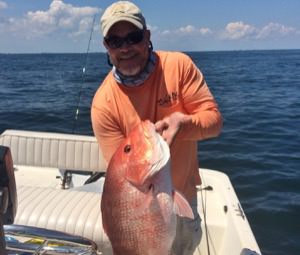
Chris Horton is Senior Director of the Midwestern States/Fisheries Program for the Congressional Sportsmen's Foundation (CSF). He joined CSF in 2010 as the Midwestern States Director. In this role he oversees and interacts with the state legislative sportsmen's caucuses and members of the Governors Sportsmen's Caucus throughout the region. Soon after joining CSF, he was given additional responsibilities as CSF's Fisheries Program Director, where he serves as CSF's primary point of contact on all federal fisheries management issues, as well as assisting the States Program Team staff with challenges for anglers at both the state and regional levels.
Prior to joining CSF, Chris served as the Conservation Director for the Bass Anglers Sportsman Society (B.A.S.S.). His primary responsibility was to work with and represent the B.A.S.S. Federation Nation and B.A.S.S. members on local, state and national conservation issues that impact sport fishing.
Chris received a master's degree in fisheries from the University of Arizona. Prior to working with BASS, Chris served as the reservoir research biologist, as well as the black bass biologist, for the Arkansas Game and Fish Commission.
Stephanie Madsen
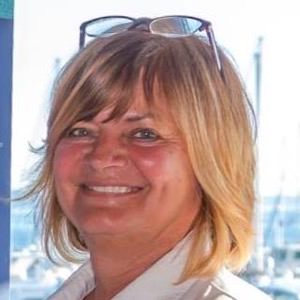
Stephanie Madsen has been involved in Alaska fisheries since arriving in Alaska over forty years ago. She has lived in the fishery dependent communities of Cordova, Kodiak, Unalaska/Dutch Harbor and now Juneau so Stephanie understands first-hand the importance of healthy, sustainable fisheries to thriving communities.
Having served six years on the North Pacific Fishery Management Council, four of those as Chair, she was involved in establishing the Arctic Fishery Management Plan, the Aleutian Islands Fisheries Ecosystem Plan and designing catch share type programs in several fisheries. Madsen continues to serve the Council as member of the Ecosystem Committee. She is a member of the Marine Protected Area Federal Advisory Committee and co-chair of the Arctic MPA Working Group. Stephanie is the Executive Director of the At-Sea Processors Association.
Will McClintock
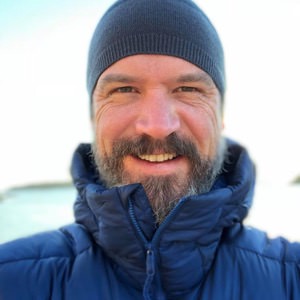
Will McClintock is a Researcher at the University of California Santa Barbara (UCSB), Marine Science Institute, and Senior Fellow at the National Center for Ecological Analysis and Synthesis. For the last eighteen years, McClintock has led a group of software engineers and planners in the development and implementation of web-based tools to engage a wide range of stakeholders in marine spatial planning. From 2004-2010, he was the Director of the MarineMap Consortium, developers and GIS professionals embedded within the Marine Life Protection Act Initiative, supporting California's stakeholders in the design of a statewide network of marine protected areas (MPAs). SeaSketch (www.seasketch.org), a web-application developed by McClintock's lab, has been used for designing MPAs in New Zealand, Canada, the Galapagos Islands, Barbuda, Montserrat, Curaçao, Indonesia, Norway, Sweden and other countries. McClintock received a B.S. in Biology from Earlham College, M.S. in Behavioral Ecology from the University of Cincinnati, M.A. in Counseling Psychology from Pacifica Graduate Institute, and Ph.D. in Ecology, Evolution and Marine Biology from the University of California Santa Barbara.
Samantha Murray
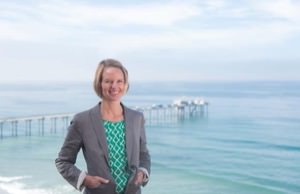
Samantha Murray is faculty at the Scripps Institution of Oceanography, where she is also the Executive Director of an interdisciplinary Master's Program in Marine Biodiversity and Conservation. She has nearly two decades of experience in conservation and has directed ocean and water programs at Ocean Conservancy, the Audubon Society and Oregon Environmental Council. Samantha also founded an ocean policy consulting business, where she works with clients on issues related to water quality, ocean acidification, habitat protection and climate change. Samantha played a key role in the design and implementation of California's network of marine protected areas, which now covers 16 percent of state waters.
Samantha has spoken at conferences around the world about ocean conservation best practices and holds a J.D. from Lewis and Clark Law School, where she was awarded a Certificate in Natural Resources and Environmental Law. Samantha is committed to diversity, inclusion and more equitable impacts of public policy.
David S. Robinson, M.A., R.P.A.
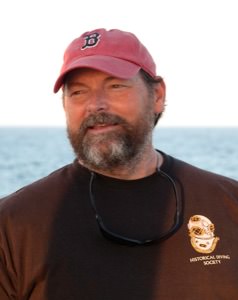
David S. Robinson, M.A., R.P.A., is a marine archaeologist at the University of Rhode Island's Graduate School of Oceanography and President & CEO of David S. Robinson & Associates, Inc., a submerged cultural resource management firm based in Jamestown, RI.
David specializes in multi-disciplinary marine archaeological investigations of submerged shipwrecks, coastal infrastructure, and ancient cultural sites submerged by sea level rise. He has over 27 years of experience in submerged cultural resource management, and has worked extensively with federal and state agencies, Tribes, industry, and academia in the U.S. and abroad. David is co-principal investigator on the multi-year "Submerged Paleocultural Landscapes Project" funded by the U.S. Department of the Interior's Bureau of Ocean Energy Management. The Paleocultural Landscapes Project is developing new research techniques and recommendations for "best practice" protocols for identifying and protecting ancient submerged cultural sites. David has an undergraduate degree in anthropology and art from the University of Rhode Island. His master's degree is in anthropology/nautical archaeology from Texas A&M University, and he is completing a Ph.D. in anthropology at the University of Connecticut, where his research focuses on marine spatial planning and submerged cultural landscapes.
David served as an adjunct faculty member in the University of Connecticut Maritime Studies and Study Abroad Programs from 2006-2009. He served as the first-ever Maritime Heritage representative on the Stellwagen Bank National Marine Sanctuary's Advisory Council (2008-2014), and was appointed last year to serve a three-year term (2017-2020) as a member of the Mashantucket Pequot Museum & Research Center's "Knowledge-Makers Program." David has authored dozens of technical reports and is a frequent invited speaker at local, regional, national, international, and tribal institutions, agencies and conferences. David is an American Academy of Underwater Sciences-authorized Scientific Diver, and a full-member of the New York Archaeological Council, the Society for American Archaeology, and the Society for Historical Archaeology. He is a Life Member of the Massachusetts and Maine Archaeological Societies.
Pete Stauffer
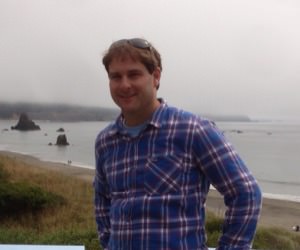
Pete Stauffer is Environmental Director and manages the Surfrider Foundation's campaigns and programs to address the protection of our ocean, waves, and beaches. Based in San Clemente, CA, Pete supports Surfrider chapters and staff across the U.S. to advance local, state and national priorities.
Pete's expertise includes knowledge of coastal management, marine protected areas, plastic pollution, offshore energy, beach access, and climate change. He has also led regional coastal recreation studies to collect economic and geospatial data to inform coastal management decisions. In 2014, Pete was appointed to the Federal Marine Protected Area (MPA) Advisory Committee as a representative of coastal recreational users.
Pete holds a B.A. in Environmental Policy from Duke University and a Master's degree from the University of Washington's School of Marine Affairs. After completing his Master's degree, Pete worked for the NOAA Fisheries Service in Washington D.C. before joining the Surfrider Foundation. Pete feels incredibly lucky to work with such talented and passionate volunteers and staff.
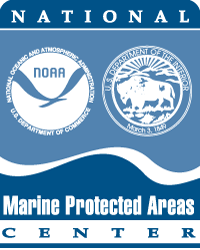 Marine Protected Areas
Marine Protected Areas